School of Social Work News
Pages
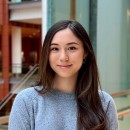 Olivia Chang Speaks to MSN About How PTSD Can Affect Parenting
Olivia Chang Speaks to MSN About How PTSD Can Affect ParentingPhD student Olivia Chang was quoted in a recent MSN article about her research on the connection between veterans with PTSD and their use of corporal punishment in their parenting practices. “Understanding a child’s emotions and behavior is essential for effective parenting. This study reveals the challenges parents face in deciphering emotional cues, particularly when shaped by factors like racial background and the effects of traumatic stress,” said Chang. The story also was published in Medical Xpress.
- February 21, 2025
- Learn more »
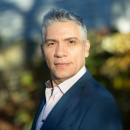 Rogério Pinto Discusses Gender-Affirming Health Care with Michigan Public Radio
Rogério Pinto Discusses Gender-Affirming Health Care with Michigan Public RadioProfessor Rogério Pinto spoke with Michigan Public Radio's “Stateside” about the recent executive order to cut federal funding to health care centers that provide gender-affirming care for minors. This order includes restrictions on coverage under Medicaid, Medicare, and federal employee benefits.
“We have a vast amount of research that demonstrates that those procedures are safe, they are life-saving for a lot of young people,” said Pinto.
- February 21, 2025
- Learn more »
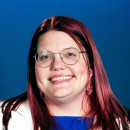 The School of Social Work Welcomes Katie Edwards
The School of Social Work Welcomes Katie EdwardsProfessor Katie Edwards focuses her research on preventing and responding to sexual and related forms of violence among structural minoritized populations using community-based participatory methods. Her current work is focused on program development and evaluation with Indigenous youth and communities as well as LGBTQ+ youth in online spaces. She helped establish the first Indigenous-led sexual violence prevention center, entitled Peaceful Means, on the Pine Ridge Reservation in South Dakota. Edwards’ other projects include:
- Family Accepted Project Online (FAPO)
- IDEA3 ( Internet-Delivered Enhanced Assess, Acknowledge, Act)
- Project LIVE (Love, Inclusivity, Values, Education)
- Promoting Resilient Youth with Strong Hearts and Minds (PRYSHM) Project
- Strong, Thriving and Resilient Men (STAR-M)
- Teen Connection Project (TCP)
- The Takini (Survivor) Project
- Wahwala Iyohlogya (Peaceful Means)
- Tiwahe Tewichaglapi (Lakota Family Acceptance Project)
- Supporting Survivors & Self—Indigenized (SSS-I; Miye na Wicakiya Oyate Wi Okiciyapi Kta)
“I am deeply grateful to be at the University of Michigan School of Social Work. What excites me most is that the School really walks in their DEI values. I remember when I interviewed here being struck by how much room there was for positionality and emotionality, and how intellectually stimulated and motivated I felt — those collective experiences made me confident that U of M was where I should be alongside my teams,” said Edwards. “I believe that with these values and the strong infrastructure will allow my teams and me to dream bigger and make more impactful change than we could at any other university in the world. I, along with my team of over 50 amazing staff and co-leaders, couldn’t be more excited, proud, and joyful to be here.”
Edwards joins the School from the University of Nebraska-Lincoln, where she has served as Professor of Educational Psychology. She received her MS and PhD in Clinical Psychology from Ohio University, Athens.
- February 21, 2025
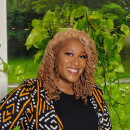 Lexx Brown-James Shares Tips in SELF Magazine on Sexting with Confidence
Lexx Brown-James Shares Tips in SELF Magazine on Sexting with ConfidenceLexx Brown-James, director of the School’s Sexual Health Certificate Program, shared with SELF magazine her best practices and tips for sexting with confidence. This article also appeared in VOGUE India.
- February 20, 2025
- Learn more »
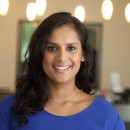 Ayesha Ghazi Edwin Discusses New Ann Arbor Housing Initiative with WXYZ
Ayesha Ghazi Edwin Discusses New Ann Arbor Housing Initiative with WXYZClinical Assistant Professor Ayesha Ghazi Edwin recently spoke with WXYZ about a new website the city of Ann Arbor is launching that will help renters find housing options. Ghazi Edwin, who represents Ward 3 on Ann Arbor City Council, helped create the initiative, which she said is designed to empower renters and transform how they find housing. The article also appeared in MLive.
- February 20, 2025
- Learn more »
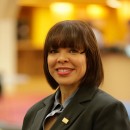 Michelle Woods Coauthors New Social Work Career Guidebook
Michelle Woods Coauthors New Social Work Career GuidebookMSW Student Career Services Director Michelle Woods is a coauthor of “The Social Work Career Guidebook: How to Land Your Ideal Job and Build a Legacy.” The book encourages readers to take a long view of their career and provides tools and inspiration for every stage of their social work career journey.
- February 13, 2025
- Learn more »
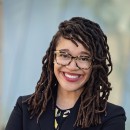 Ashley Cureton Discusses Her Academic Journey
Ashley Cureton Discusses Her Academic JourneyAssistant Professor Ashley Cureton’s academic journey and her work with refugee communities were featured in Diverse Issues in Higher Education. She shared this advice: ”Remember, it’s progress, not perfection. You win some and you lose some. No matter what happens, keep pushing towards greatness.” The article also gave a shout-out to Cureton’s career mentors including Professors Rogério Pinto and Trina Shanks.
- February 13, 2025
- Learn more »
 Jewel Woods Writes About Black History Month and Black Men’s Health in Psychology Today
Jewel Woods Writes About Black History Month and Black Men’s Health in Psychology TodayLecturer Jewel Woods wrote about the connection between Black History Month and Black men's health in Psychology Today. “Strength isn’t about suppressing pain; it’s about having the courage to face it. To be the best version of ourselves—for ourselves, the people we love, and those who rely on us—we must develop the insight and skills to navigate life’s challenges.”
- February 13, 2025
- Learn more »
 Katie Edwards Quoted in CNN on NIH Funding Caps
Katie Edwards Quoted in CNN on NIH Funding CapsProfessor Katie Edwards spoke with CNN about the announcement of funding caps from the National Institute of Health and how that affects research at institutions and universities across the country. “These are funds that are used to keep, I mean literally, to help keep the lights on at the university,” said Edwards. “Without having sufficient funding, I don’t know how many universities are going to be able to continue to be leading research institutions in the world, quite frankly.”
- February 13, 2025
- Learn more »
- Jacob Inosencio and Sabrina Lanker Named 2025 Dow Sustainability Fellows
MSW students Jacob Inosencio and Sabrina Lanker have been named 2025 Dow Sustainability Program Fellows by U-M’s Graham Sustainability Institute. Fellows are chosen through a competitive nomination and application process designed to attract and recognize top talent from across U-M’s academic disciplines. Each fellow will receive a $25,000 stipend along with supplementary project funding, professional development opportunities, and hands-on experience collaborating with external organizational partners.
"I am honored to represent the School of Social Work in the Dow Sustainability Program. By infusing social work values into these critical discussions, I hope to help drive meaningful, sustainable change in collaboration with our various community programs while always keeping equity and environmental justice at the heart of our efforts,” said Inosencio. “I’m also eager to learn from the incredible team of graduate students, whose diverse perspectives will undoubtedly enrich my current and future work in community development."
“Critical mineral production is in increasing demand as clean energy and electric vehicle production soars,” said Lanker. “I will be working on a project titled "Pathways for Sustainable Critical Minerals Extraction on U.S. Private Lands" with the National Wildlife Federation. Through this project, my team will explore best practices for minimizing the environmental, wildlife, Indigenous and cultural, and human health impacts of new critical mineral mining on private lands in the U.S. This project brings together two of my biggest passions, environmental science and social work. I am excited to provide my unique perspectives on environmental advocacy and environmental justice while exploring sustainable methods for mineral extraction!”
- February 4, 2025
- Learn more »